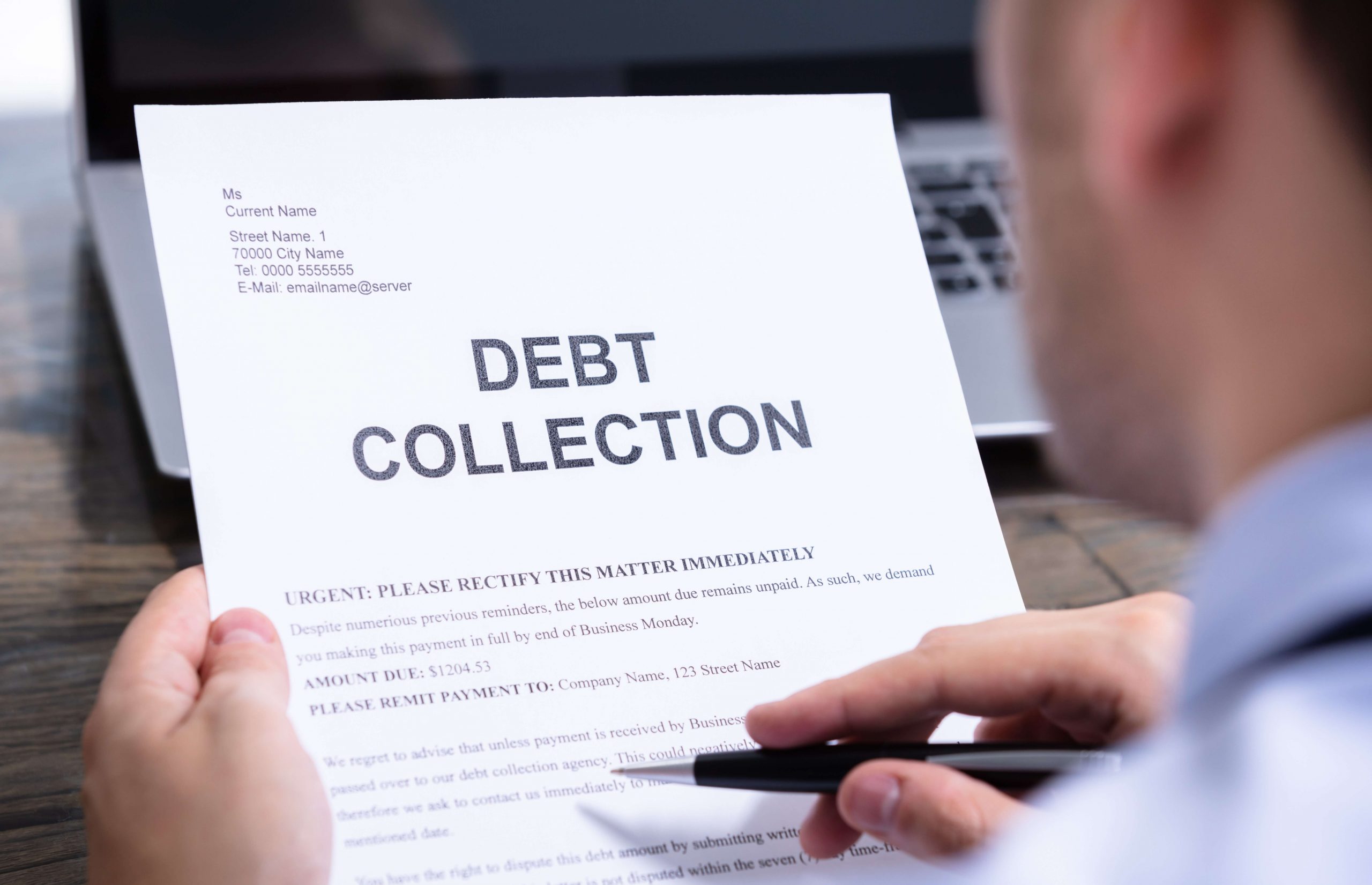
Unpaid debts can be a source of financial stress for individuals and businesses alike. In Australia, understanding the ins and outs of debt recovery is essential to manage financial obligations effectively.
In this article, we will address common questions regarding unpaid debts, the timeframes for debt payment and recovery, and the potential ramifications for debtors.
Keep reading to learn more about debts in Australia.
Common Questions About Unpaid Debts
1. What happens to unpaid debts?
When a debt remains unpaid, creditors often seek to recover the owed amount through a process known as debt recovery. Debt recovery involves a series of steps aimed at collecting the outstanding debt from the debtor. Debt recovery can occur in a variety of ways, including the individual or business who is owed the debt may try to recover the money from their debtor directly, they may engage the services of a debt recovery lawyer, or they may work with a debt collector or debt collection agency.
2. How Long Does Someone Have to Pay a Debt?
The timeframe for debt payment varies based on the nature of the debt and the terms of the agreement. Generally, creditors provide a specific period for debt repayment, which can range from a few weeks to several months. In some cases, repayment plans or negotiations may extend the timeframe further.
3. How long until a debt is written off?
In Australia, a debt is not usually automatically “written off” after a specific period of time, rather the process of writing off a debt is influenced by various factors, including the type of debt, the creditor’s policies, and legal regulations. And the process to “write off” a debt involves a series of steps that creditors take to manage and recover debts. Here’s a general overview:
- Default and Delinquency: When a debtor fails to make payments on a debt as per the agreed terms, the debt is considered delinquent or in default. This is the starting point for debt management and collection efforts.
- Internal Debt Collection Efforts: After a debt becomes delinquent, creditors often initiate internal debt collection efforts. This can involve sending reminders, notices, and making phone calls to encourage the debtor to make payments.
- External Collection Agencies: If internal efforts prove unsuccessful, creditors may engage external collection agencies. These agencies specialise in debt recovery and may use more assertive tactics to collect the debt.
- Legal Action: If other attempts fail, creditors may resort to legal action. They can file a lawsuit to obtain a court judgment against the debtor. This judgment can enable them to pursue various methods of debt recovery, such as wage garnishment, property liens, or asset seizure.
- Financial Hardship and Debt Settlement: In cases where debtors are facing genuine financial hardship, creditors may be open to negotiating debt settlements or repayment plans that take the debtor’s circumstances into account. These negotiated settlements can lead to a portion of the debt being forgiven or reduced.
- Insolvency and Bankruptcy: If a debtor is unable to meet their financial obligations, they may declare bankruptcy or enter into formal insolvency arrangements. In such cases, the debtor’s assets may be liquidated to pay off creditors to the extent possible.
- Timeframe for Statute of Limitation: It’s important to note that there is a statute of limitations that can affect the ability to legally pursue a debt. The statute of limitations sets a timeframe within which legal action can be taken to recover a debt. Once this timeframe expires, the debt may no longer be legally enforceable through court action. However, the debt itself doesn’t necessarily disappear; creditors may still attempt to collect the debt informally.
4. How Long Can Creditors Chase a Debt?
In Australia, the limitation period for pursuing a debt varies depending on the jurisdiction and the type of debt. The limitation period typically ranges from 3 to 6 years, during which creditors can legally take action to recover the debt. It’s important to note that this period may be reset if the debtor acknowledges the debt or makes a partial payment.
5. What Happens After the Limitation Period Expires?
Once the limitation period expires, creditors may face limitations on their legal options for pursuing the debt. However, they may still attempt to collect the debt through informal means, such as sending reminders or negotiating with the debtor. While legal action becomes more challenging after the limitation period lapses, debtors should be aware that the debt still exists and may affect their credit history.
6. What consequences does the debtor face if they don’t pay their debts?
Unpaid debts can have several potential ramifications for debtors:
- Damage to Credit Rating: Failure to repay a debt can result in a negative impact on the debtor’s credit score, making it harder to access credit in the future.
- Legal Action: Creditors may choose to take legal action to recover the debt, potentially leading to court proceedings and a court judgment against the debtor.
- Seizure of Assets: In some cases, creditors may seek to recover the debt by seizing assets or property belonging to the debtor.
- Bankruptcy: If the debt is substantial and the debtor is unable to repay, creditors may initiate bankruptcy proceedings against the debtor.
- Stress and Mental Health Impact: Dealing with unpaid debts can cause significant stress and negatively affect the debtor’s mental health.
- Can Creditors Contact Me at Any Time to Collect a Debt?
Creditors are subject to laws and regulations that govern debt collection practices. They are generally not allowed to harass, threaten, or use deceptive tactics to collect debts. Debtors have rights under the Australian Consumer Law, and creditors must adhere to fair debt collection practices.
7. Can I Dispute a Debt if I Believe It’s Not Valid?
Yes, if you believe a debt is not valid or you disagree with the amount owed, you have the right to dispute the debt. You should contact the creditor in writing to explain your reasons for disputing the debt. The creditor is required to investigate the matter and provide you with a response. If the dispute remains unresolved, you can seek assistance from relevant authorities or seek legal advice.
8. What Is a Debt Repayment Plan?
A debt repayment plan is an arrangement between a debtor and a creditor to repay the debt over an extended period. It typically involves negotiating a new payment schedule that is manageable for the debtor. Debt repayment plans can help debtors avoid legal action and damage to their credit score, provided they adhere to the agreed-upon terms.
Devising a debt repayment plan is often one of the strategies a debt collector uses in order to recover debts from a debtor.
9. Can Creditors Seize My Superannuation to Repay a Debt?
In most cases, creditors cannot seize your superannuation to repay an outstanding debt. Superannuation is generally protected from creditors unless specific circumstances apply, such as bankruptcy.
10. Can I Declare Bankruptcy to Get Rid of Unpaid Debts?
Bankruptcy is an option for individuals facing overwhelming debt, but it should be considered carefully. While bankruptcy can provide relief from certain debts, it also has significant consequences, including the potential sale of assets, restrictions on obtaining credit, and a lasting impact on your credit history. Before declaring bankruptcy, it’s advisable to seek professional advice to explore all available options.
11. Can Unpaid Debts Lead to Legal Proceedings?
Yes, creditors could have the right to initiate legal proceedings to recover unpaid debts. Legal action may involve obtaining a court judgment, which can result in various enforcement actions, such as wage garnishment, property liens, or asset seizure. It’s important to respond promptly if you receive a legal notice and seek legal advice if necessary.
12. Can I Settle a Debt for Less Than the Full Amount?
Yes, creditors may be willing to negotiate a debt settlement for less than the full amount owed. Debt settlement involves reaching an agreement with the creditor to pay a reduced sum to satisfy the debt. It’s crucial to ensure that any settlement offer is documented in writing and that you fully understand the terms before agreeing.
Choose the professional debt collectors at JMA
Dealing with unpaid debts and navigating debt recovery in Australia can be complex and challenging and it’s important to have experienced professionals on your side.
Here at JMA, we have more than 60 years of combined experience in debt recovery and collection for businesses all over Australia.
If you need help with recovering your debts, talk to us today.





















